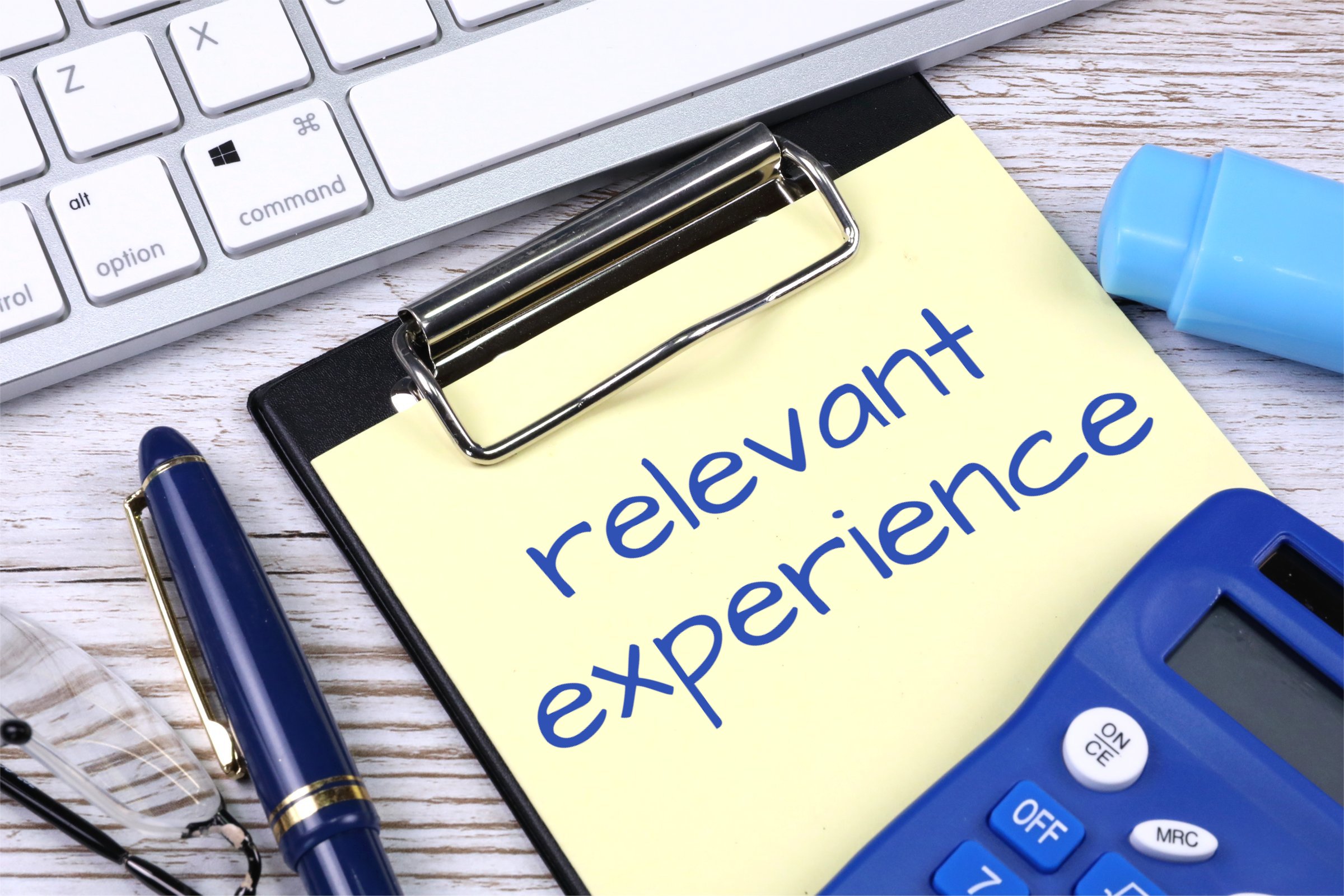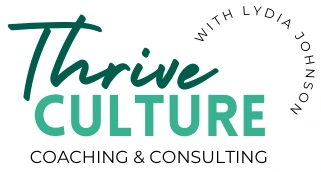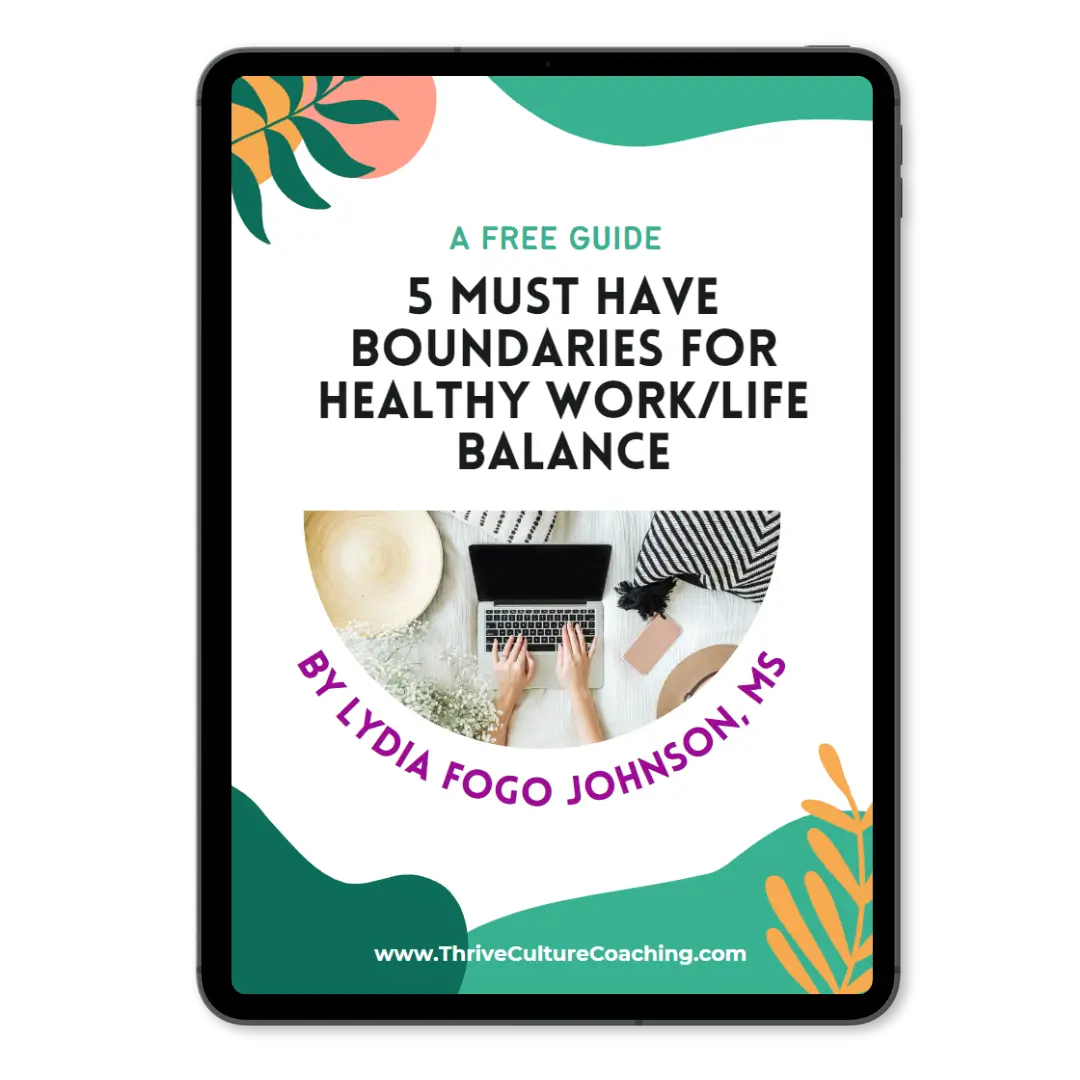Table of Contents
If you’re feeling stuck in your career — maybe you’re stressed, burned out, or just plain unfulfilled — you’re not alone. Whether you’re wrestling with Sunday Scaries or wondering if it’s time to make a big change, chances are you’ve thought, “Maybe I need help… but how do I find a career coach?” But figuring out how to find the right career coach can feel just as overwhelming as the problems you’re trying to solve.
Not all career coaches are created equal. Some focus on résumés and interviews, others on climbing the corporate ladder, and still others — like me — help clients navigate burnout, career clarity, and create more fulfillment in their careers.
In this guide, we’ll break down everything you need to know to find a career coach who aligns with your goals, values, and needs. We’ll cover the different types of career coaches, how to vet credentials, what to expect from a high-quality coaching experience, and what red flags to avoid — so you can confidently choose someone who gets where you’re coming from and can help get you where you want to go.
What Does a Career Coach Actually Do?
At its core, career coaching is about helping you gain clarity, make empowered decisions, and move forward with more confidence and less stress. A career coach isn’t a therapist, a recruiter, or your manager — they’re your thinking partner. Someone trained to help you sort through the noise, identify what matters most, and build a plan that actually feels doable.
Depending on the coach, career coaching can help you:
- Explore new career directions and define your version of success
- Set boundaries, manage burnout, and build a more sustainable work-life rhythm
- Develop leadership skills or prepare for a promotion
- Navigate a toxic workplace or major life transition
- Strategically job hunt — with better résumés, networking, and interview prep
- Help you decide if you can improve your current job or if it’s time to quit
Not all coaches offer the same support. Some focus strictly on job-search tactics. Others are leadership-focused. And then there are coaches like me — who work holistically, taking into account your goals, stress levels, personal values, identity, and bandwidth. I support high-achieving professionals who are tired of white-knuckling their way through work, especially those who want clarity, calm, and career fulfillment without burning out.
If you’re asking bigger questions like “Is this the right job for me?” or “Can I keep doing this without losing myself?”, then a holistic career coach (like me) can help you answer them — and take meaningful action.
Types of Career Coaches — And Why It Matters
One of the biggest misconceptions about career coaching is that it’s all the same. In reality, career coaches come with different specializations, methods, and philosophies. And choosing the right one starts with understanding what kind of support you actually need.
By Goal or Challenge

Goals by Nick Youngson CC BY-SA 3.0 Pix4free
Different types of career coaches are best suited for different challenges. Before you start endlessly reading coach profiles, ask yourself: What am I hoping to solve or achieve?
Then, choose the coach who’s equipped to meet you there. For example:
- Career Clarity Coaches help you figure out what you want to do next — perfect if you’re stuck, questioning your path, or craving something more meaningful.
- Job Search Coaches focus on résumés, LinkedIn, interview prep, negotiate your salary, and strategy for landing a new role.
- Promotion Coaches help you develop leadership skills, increase visibility, prepare for a promotion interview, and prepare for higher-level roles.
- Performance & Productivity Coaches support you in organizing your workload, building new habits, and reaching goals without burning out.
- Burnout & Work-Life Balance Coaches (like me) help you redesign your career to reduce stress, set boundaries, and make your work support your life — not swallow it.
Some coaches focus on one area, while others span multiple. For example, I specialize in burnout recovery, work-life balance, and career clarity. While I absolutely help clients land better jobs or grow into leadership, I’m not the best fit for someone looking exclusively for tactical job search support — there are coaches out there who live and breathe that. My work goes deeper.
By Identity or Demographic
Often, the best coach is someone who deeply gets you — because they’ve been where you are.
Many coaches focus on supporting specific identities or life stages, such as:
- College students or recent grads navigating the job market
- Mid-life career changers seeking reinvention
- Women in male-dominated fields looking to lead with confidence
- Working parents, especially moms, balancing career and caregiving
- BIPOC or LGBTQ+ clients seeking culturally competent coaching
- Neurodivergent, ADHD, or Highly Sensitive People needing tailored strategies
Because of who I am — a queer, neurodivergent woman and working mom — my coaching is centered on high-achieving women and leaders who are maxed out, overwhelmed, and wondering if there’s a better way. I also often work with fellow neurodivergent clients who want ADHD career coaching or HSP-friendly coaching methods that actually work for how their brains function.
Your career isn’t just about what you do — it’s shaped by who you are, what you value, and what you’re carrying. That’s why finding a coach who understands your lived experience can make all the difference.
By Methodology or Coaching Style
Not every coach works the same way — and not every method works for every person.
- Holistic & evidence-based coaches (like me) focus on real-life, sustainable change that honors your bandwidth, values, nervous system, and season of life.
- Recruiter-style coaches offer highly tactical advice — best for short-term wins like landing a new role.
- Mindset or spiritual coaches focus on energy, belief, and alignment — helpful for some, not all.
- Some coaches use structured, research-backed models (like Designing Your Life or CBT), while others are more conversational and intuitive.
Personally, I take a creative and holistic yet evidence-based approach that combines my Master’s in Industrial-Organizational Psychology with tools from Designing Your Life, Positive Psychology, Mindfulness-Based Stress Reduction, and certifications in burnout recovery, matrescence, and behavior change. It’s real-life transformation — not just pep talks or worksheets.
By Format: Group, Private, or Hybrid
Coaching can also vary based on format — and what works best for you might depend on how you learn, what kind of support you need, and your capacity.
- Private Coaching offers personalized, 1:1 support tailored to your goals, pace, and energy. It’s great if you want deep guidance, confidentiality, and space to dig into your unique challenges.
- Group Coaching offers community, shared learning, and connection with others facing similar issues. It’s often more affordable and energizing if you’re a collaborative learner.
- Hybrid Programs (like mine) combine both — giving you the depth of 1:1 sessions with the added benefits of group support, bonus trainings, or on-demand resources.
I personally offer private and hybrid coaching because I’ve found that combining individualized support with curated resources and optional community creates the best outcomes — without adding pressure. You get guidance, structure, and space to reflect and grow at your own pace.
How to Vet a Coach’s Credentials
Here’s a hard truth most people don’t realize: Coaching is an unregulated industry. That means anyone — literally anyone — can call themselves a “career coach” without formal training, experience, or a clear approach.
That’s why it’s essential to do your homework before hiring a coach. You deserve to work with someone who’s qualified, skilled, and aligned with your needs — not someone guessing their way through your future.
Look for Real Training and Certifications
Start by checking if the coach has formal training and credible certifications. The International Coaching Federation (ICF) is widely considered the gold standard in the coaching industry. An ICF-certified coach has completed vetted training and adheres to a clear code of ethics — a strong sign that you’re working with someone who takes their role seriously.
Other credentials — such as Designing Your Life, burnout coaching, executive coaching, or programs rooted in behavioral science — also signal depth and specificity.
My credentials include a Master’s degree in Industrial-Organizational Psychology, ICF accreditation, and multiple certifications including a Designing Your Life coaching certification, Matrescence certification to holistically support working moms or expecting moms, an Executive Life Coaching certification, and a Fair Play facilitator certification.
Check for Experience That Aligns with Your Needs

Relevant experience by Nick Youngson CC BY-SA 3.0 Pix4free
Training is a great starting point — but so is real-world relevance. Look into the coach’s background:
- If you’re aiming for leadership growth or workplace fulfillment, someone with HR, organizational psychology, or leadership development experience may be ideal.
- If your focus is burnout, boundaries, or work-life balance, look for someone who understands emotional exhaustion and system-level stress — not just surface-level hacks.
- If you’re job hunting, a coach with experience in recruiting or hiring could provide sharper, more targeted advice.
Strong coaches will clearly outline their niche and let you know who they’re best suited to help. If you can’t tell from their website or they’re vague in conversation, that’s worth a pause.
Step-by-Step: How to Find and Choose the Right Career Coach
Once you know the type of coach you need and what credentials to look for, it’s time to actually start your search. Here’s a simple, actionable process to guide you from “just looking” to “this is my coach.”
1. Define Your Goals
Before you start Googling or booking consults, get crystal clear on why you’re looking for a coach.
Ask yourself:
- What’s not working right now in my career?
- What would success look or feel like?
- Am I seeking clarity, direction, tools, support — or all of the above?
This helps you quickly rule out coaches who don’t align with your focus. For example, if you’re burned out and unsure whether to stay or go, a job-search coach might not be the right fit — but a holistic coach who blends career and well-being (like me) would be.
2. Do Your Research
Once you’ve named your goals, it’s time to search intentionally. You can find potential coaches via:
- Referrals from friends, colleagues, or therapists
- LinkedIn or professional networks
- ICF’s coach directory
- Google searches that include your specific need (e.g., “career coach for burnout”)
Once you’ve got a shortlist, dig into each coach’s website, bio, and testimonials. Look for clarity in:
- Who they help
- How they help
- What their clients say
3. Evaluate Their Program Structure
Great coaching isn’t just conversation — it’s a structured, intentional process. Ask:
- Do they offer a clear path, roadmap, or methodology?
- Is coaching offered as part of a package, program, or one-off sessions?
Packages or programs tend to provide deeper transformation because there’s time for trust-building, consistent progress, and accountability. I offer structured private and hybrid coaching packages because I believe real change takes more than a quick fix.
4. Read Reviews and Ask About Past Clients

Image source: Flickr by Yuliana_Vislova
Look for testimonials that speak to situations like yours. Were clients…
- Burned out professionals who found relief and clarity?
- Women in leadership navigating big transitions?
- People who needed both career guidance and emotional support?
If the reviews all sound vague or scripted, ask the coach for anonymized success stories. A trustworthy coach won’t hesitate to share real examples.
5. Ask the Right Questions During Consultations
During your free consultation or discovery call, don’t just talk about your goals — interview the coach.
Ask:
- What’s your coaching style?
- Have you worked with clients like me?
- What tools or frameworks do you use?
- How do your sessions typically work?
- What’s included in your package?
And then ask yourself: Do I feel seen, heard, and safe? Do I trust this person to help guide me through this season of change?
6. Understand the Investment
Career coaching is an investment — and it should feel like one. Rates vary widely depending on the coach’s experience, training, and delivery style, but here are a few general rules for private career coaching sessions:
- Expect to pay at least $150–$300/session, with rates for niche or executive coaching going up to $3,000 per hour
- Packages often range from $2,000–$5,000+ depending on depth and duration
- Beware of low-ball rates under $100/session — especially from coaches who don’t have credentials or a clear process
Invest in value, not just price. A qualified coach can save you months (or years) of confusion, burnout, and second-guessing.
It’s also important to remember that while the price per hour may seem high, with a good coach, you’re getting much more value than just an hour of their time. You’re often getting access to decades of knowledge, curated resources, between session support, workbooks and worksheets, templates and more!
Red Flags to Watch Out For
Because coaching is unregulated, the quality and credibility of career coaches can vary widely. And while many coaches are deeply trained and mission-driven, others… well, not so much. Here’s what to watch for so you don’t waste your time, money, or energy.
🚩 No Formal Training or Coaching Education
If a coach can’t name their credentials or has no formal training, be cautious. Coaching is a skill — not just a conversation. Look for someone who has undergone real training, not just someone who decided to launch a coaching business after a few good career moves of their own.
🚩 No Clear Process, Plan, or Methodology
If the coach only offers vague one-off sessions with no structure, that’s a red flag. Effective coaching involves:
- A clearly defined process
- Session outlines or a loose roadmap
- Supporting tools or exercises
You should know what you’re working toward — and how you’re getting there.
🚩 Ad-Hoc Only (One-Off Sessions Without Context)
Offering a single “strategy session” or “power hour” isn’t inherently bad — but if that’s all a coach offers? It may signal a lack of long-term planning or transformation strategy.
I don’t offer ad-hoc sessions because real change takes time. I want you to get results that stick — not just a quick pep talk and a worksheet.
🚩 Vague, Overhyped, or Gimmicky Promises
Avoid coaches who make promises like:
- “Find your dream job in 30 days!”
- “Never feel stuck again!”
- “Manifest your six-figure role!”
These oversimplify complex problems — and they’re often based more in marketing than in reality. Good coaches are confident in their work but honest about the process.
🚩 No Testimonials or Client Results
If a coach has no reviews, no client stories, and no proof of transformation — that’s a red flag. You deserve to see examples of how their coaching has made a difference for others like you.
🚩 Doesn’t Feel Like a Safe Fit
This is more intuitive, but critical. If you feel dismissed, talked over, misunderstood, or pressured during a consultation? Trust your gut. A coaching relationship is deeply personal. You should feel supported, respected, and seen — not sold to.
Why My Clients Choose Me
If you’re reading this, there’s a good chance you’re not just looking for “a coach” — you’re looking for someone who understands the complexity of your life. Someone who can help you figure out how to make your career work without sacrificing everything else that matters to you.
That’s where I come in.
I’m Lydia Fogo Johnson, MS, ACC — a burnout-informed, evidence-based, holistic career coach with a Master’s in Industrial-Organizational Psychology and a stack of certifications in leadership, behavior change, mindfulness, and matrescence.
My clients are smart, high-performing professionals — especially women and working moms — who’ve spent years doing all the “right” things and still ended up exhausted, overwhelmed, or unfulfilled.
They come to me because:
- They want clarity — not more overthinking
- They need boundaries and burnout support, not just another productivity hack
- They’re ready for a career that fits their life, not the other way around
- They’ve outgrown hustle culture, but still care deeply about growing and succeeding
I combine private coaching with tools, resources, and optional hybrid support so you’re not just learning — you’re actually changing your career from the inside out.
Ready to Work With a Career Coach Who Gets It?
You don’t have to figure this out alone.
If you’re tired of spiraling about work, second-guessing your next move, or white-knuckling your way through burnout — I’m here to help you find your way back to clarity, confidence, and a career that actually supports your life.
Let’s talk. Book a free consult call and we’ll explore whether coaching is the right fit for you — no pressure, no pushy sales pitch, just a real conversation about what you want next and how to get there.
You deserve a career that works for your life — not one that drains it.
Let’s build it together.




Share